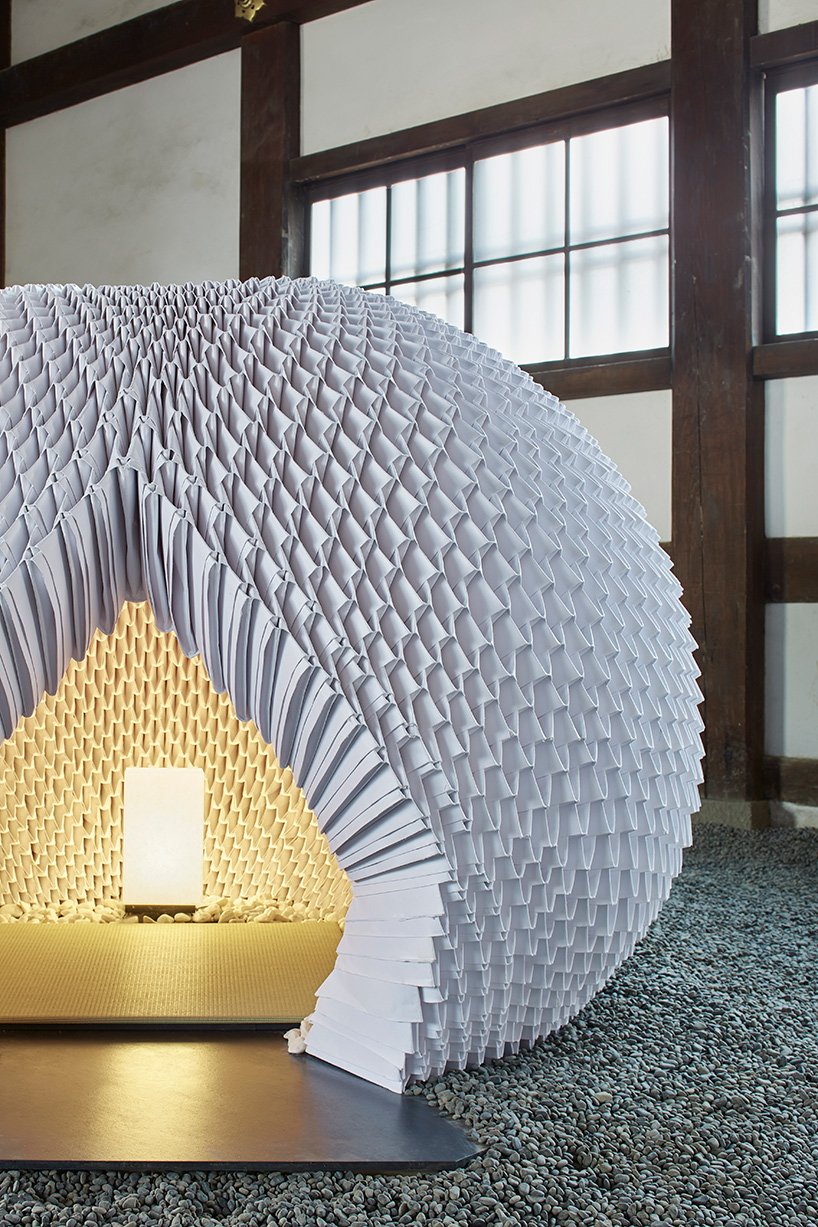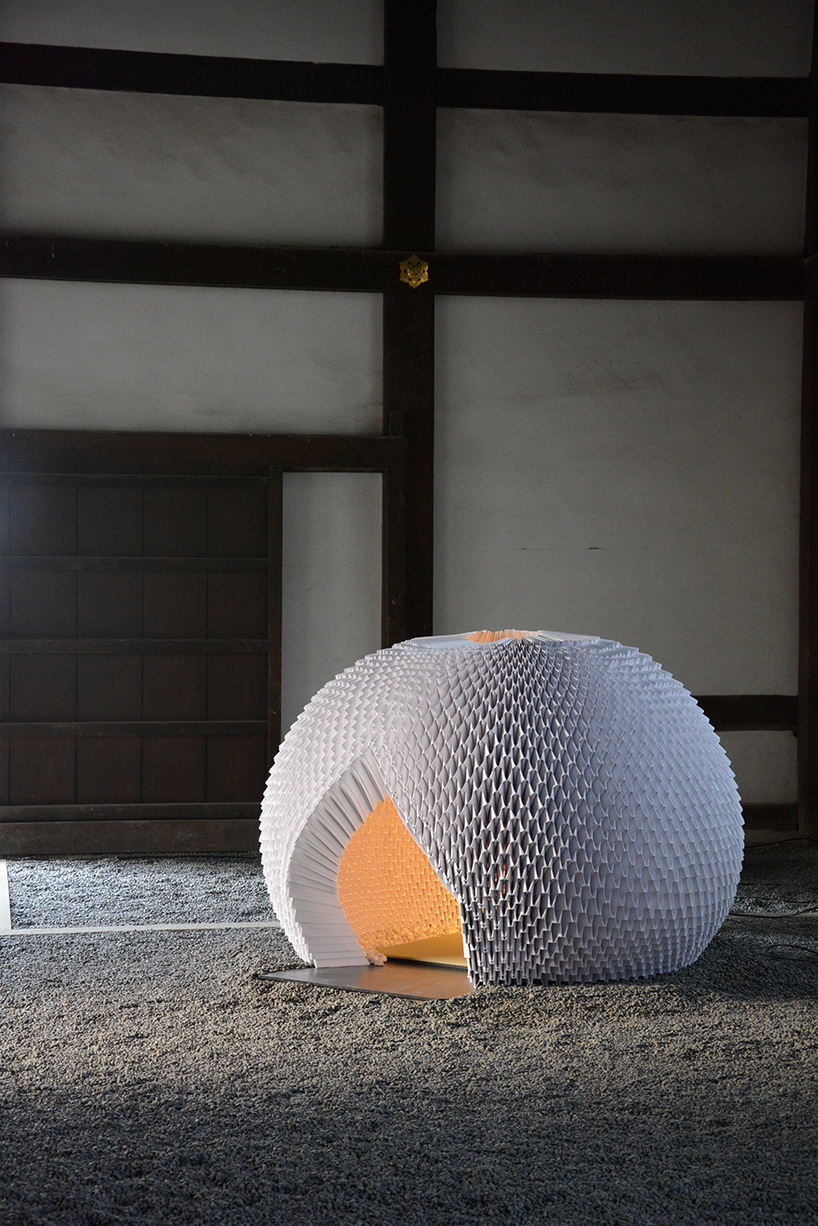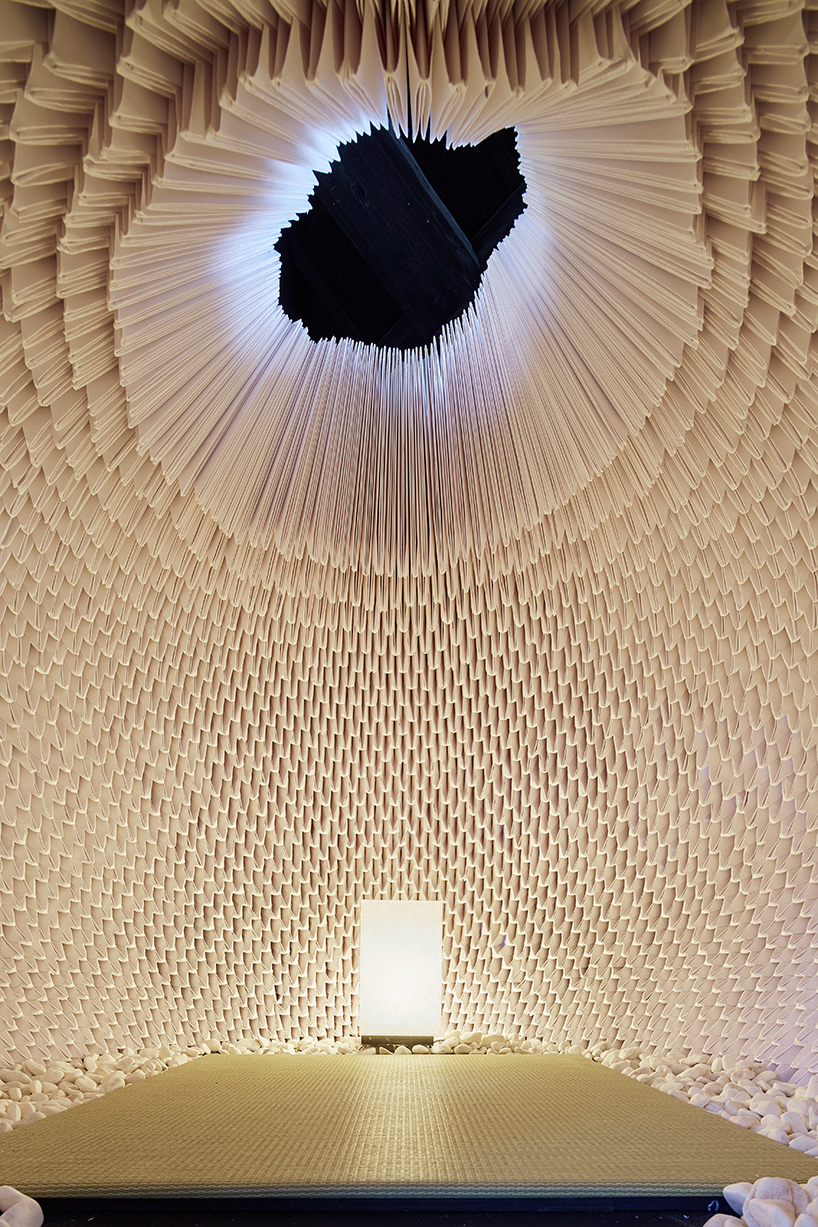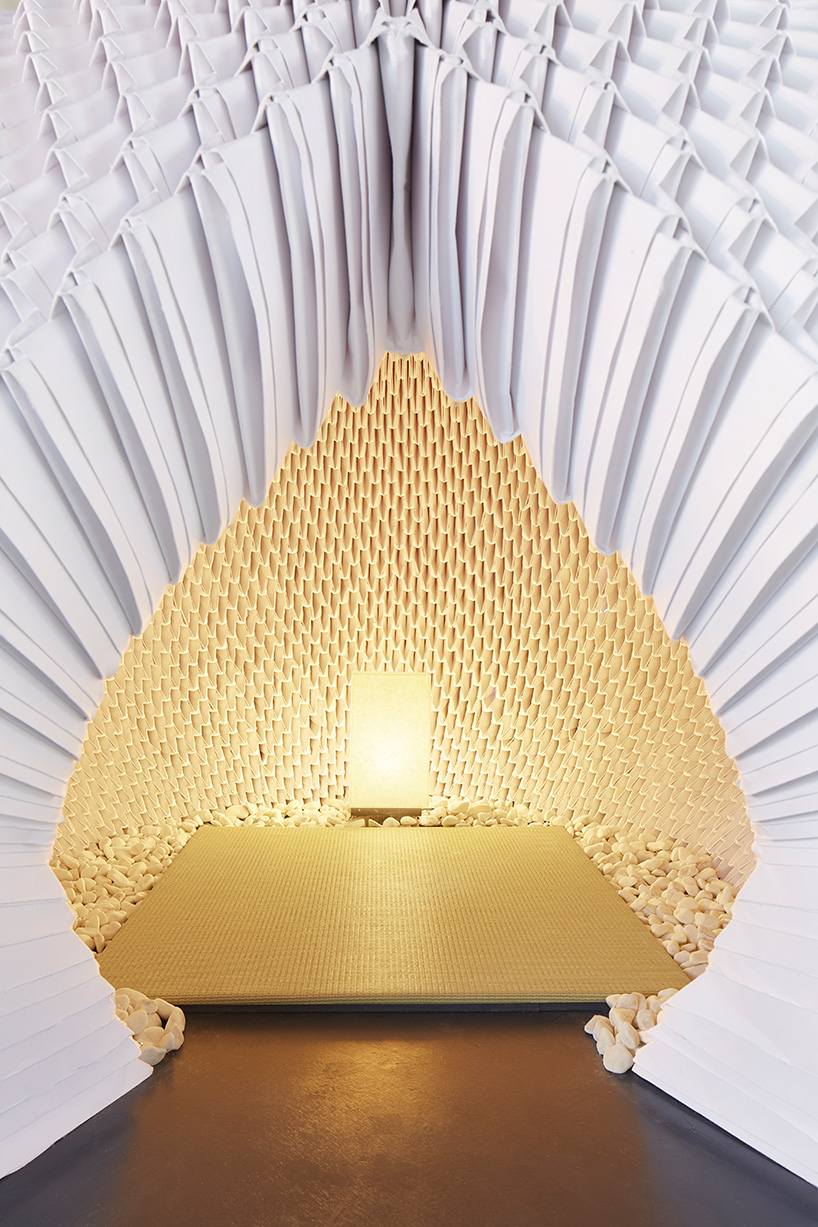No Fixed Foundations: Modular Origami House Made of Washi Paper
“Washi” is traditional Japanese paper that can be used to make origami structures both large and small.

The name of this tea house is called “Shi-an,” and it is a temporary house with no fixed foundations built in Kyoto, Japan. Washi is a fragile material but generally stronger than ordinary paper. It is made from the inner bark of the Gampi tree. Washi combined with this origami technique allows the structure to be mobile, modular and stable.

It was made using pieces of washi paper measuring 20 x 40 inches and folded 8 times to form a single structure. No glue was used and no other binding materials for the pieces of the house to be slotted together.

In Japanese culture, the idea of impermanence and transience is a well-known concept. Similar to this concept, the structure can be constructed and deconstructed whenever chosen to. There are no fixed foundations at the site. The layout can be made and remade into different configurations depending on what it is being used for.

For now, this modular origami structure remains a tea house. Designers plan to deconstruct and reconstruct it for different activities and events in the future.